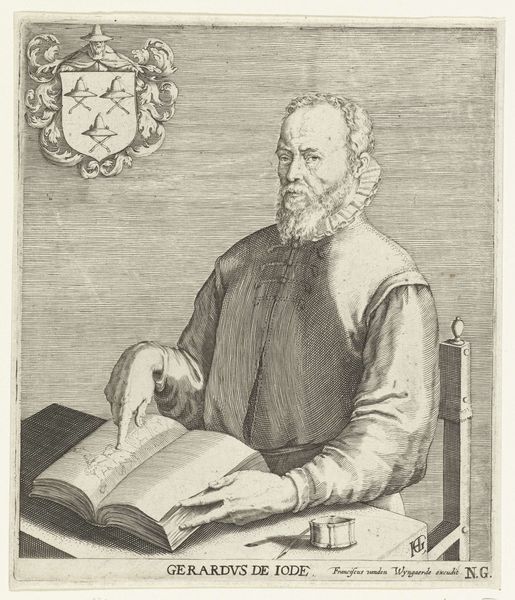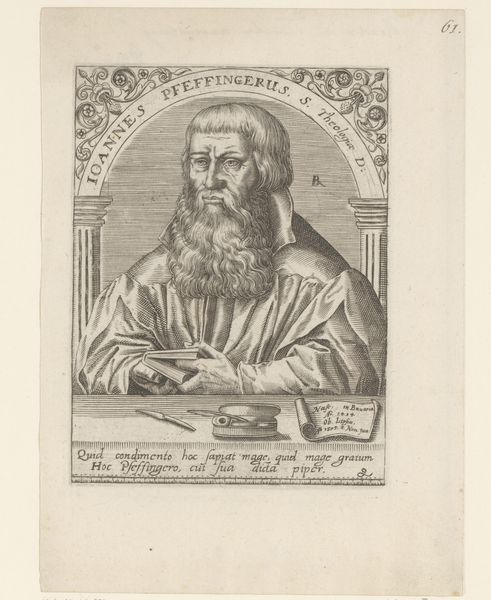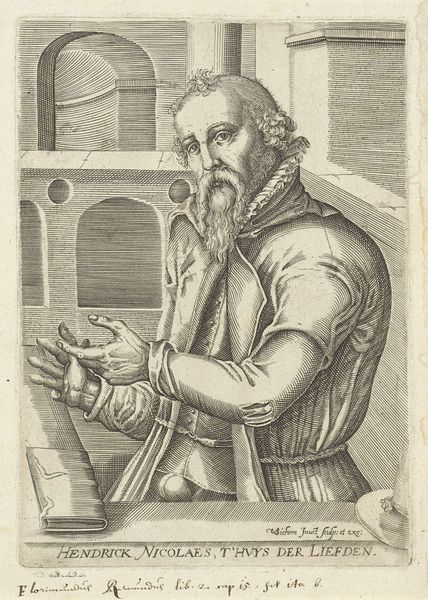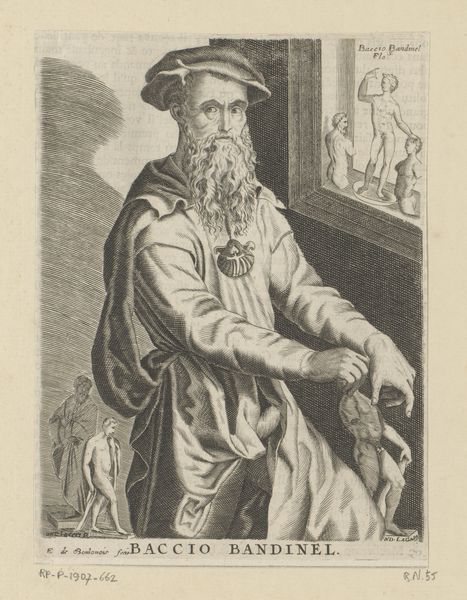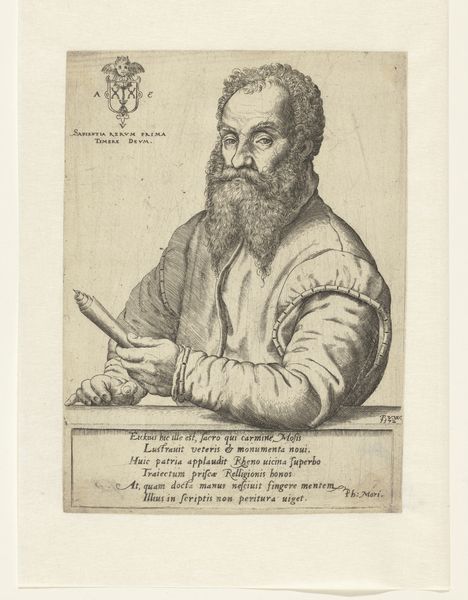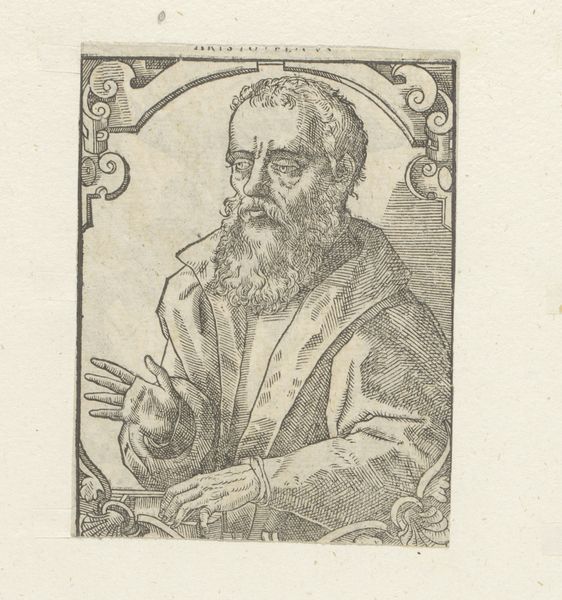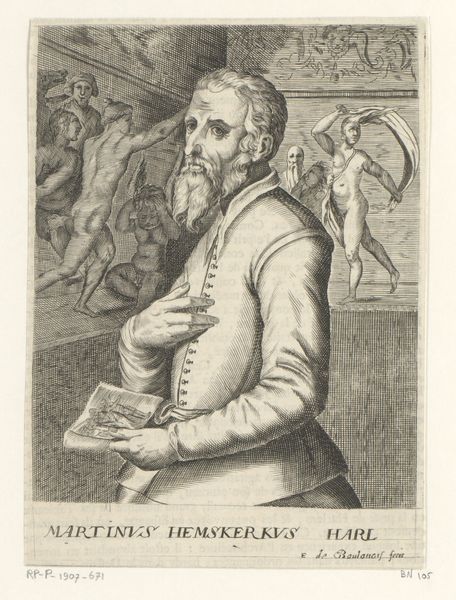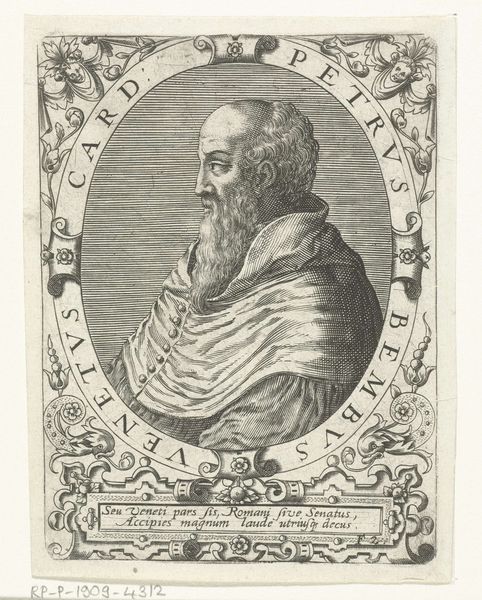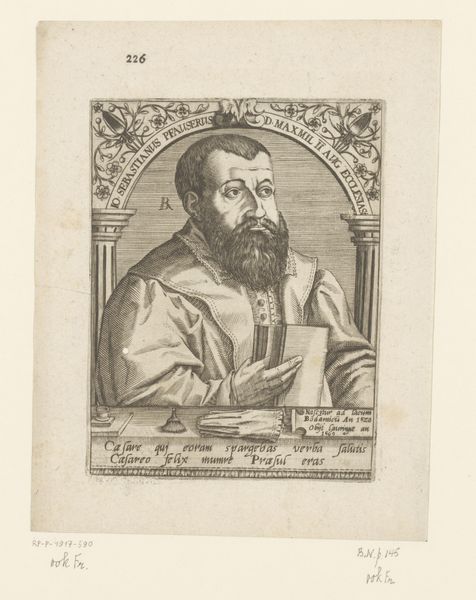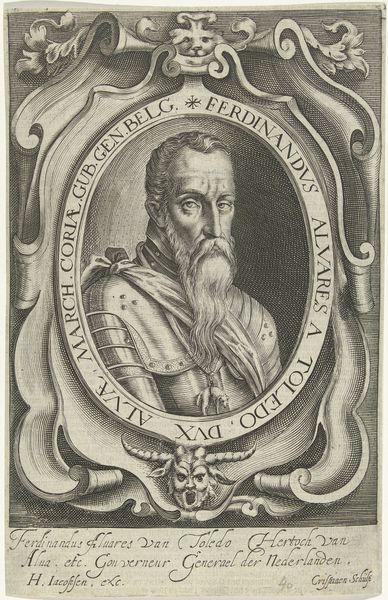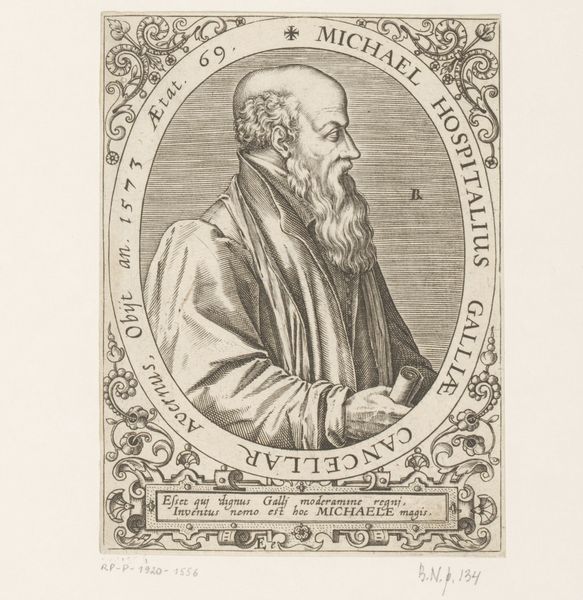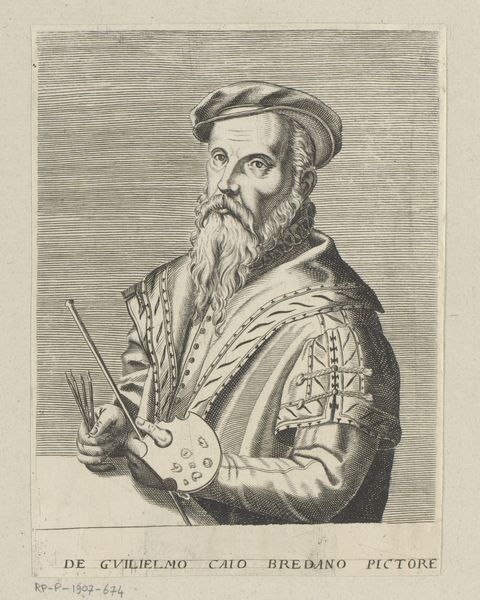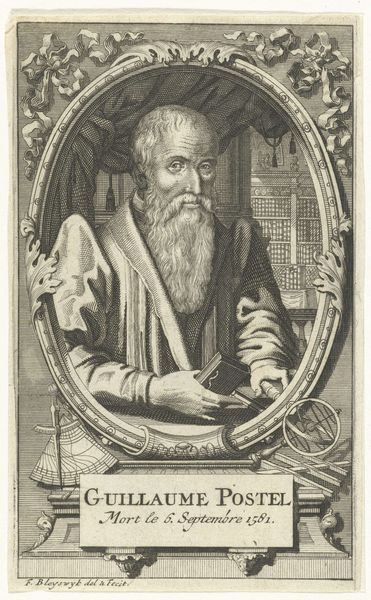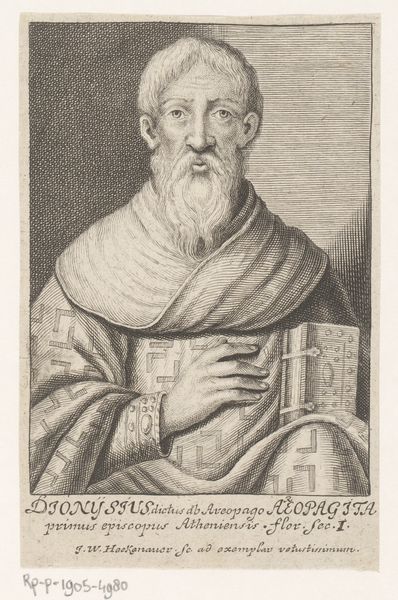
engraving
#
portrait
#
baroque
#
old engraving style
#
caricature
#
portrait reference
#
limited contrast and shading
#
portrait drawing
#
history-painting
#
engraving
Dimensions: height 181 mm, width 132 mm
Copyright: Rijks Museum: Open Domain
This portrait of Daniele da Volterra was created by Nicolas de Larmessin in the 17th century, using engraving. The lines you see were not drawn, but cut into a copper plate with a tool called a burin. Consider how this process affects the image: the sharp, precise quality of the lines, the way they create tone through density and direction, and the sheer labor involved. Larmessin would have needed to be a master of both drawing and metalwork to achieve this likeness. We get a sense of Volterra's status not only from his refined features and clothing, but the skill required to produce this image. Note that the view into Volterra’s studio in the background, where an assistant is shown carving a sculpture. This reminds us that prints like this circulated widely, allowing knowledge of artworks and their makers to spread, but also contributing to a star system that persists to this day. By focusing on the material and social context of this engraving, we see how it challenges the traditional divide between fine art and craft.
Comments
No comments
Be the first to comment and join the conversation on the ultimate creative platform.
